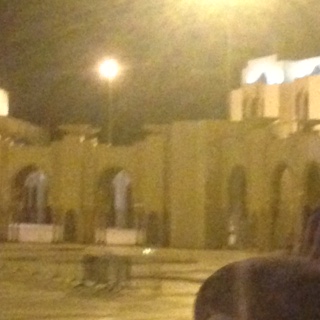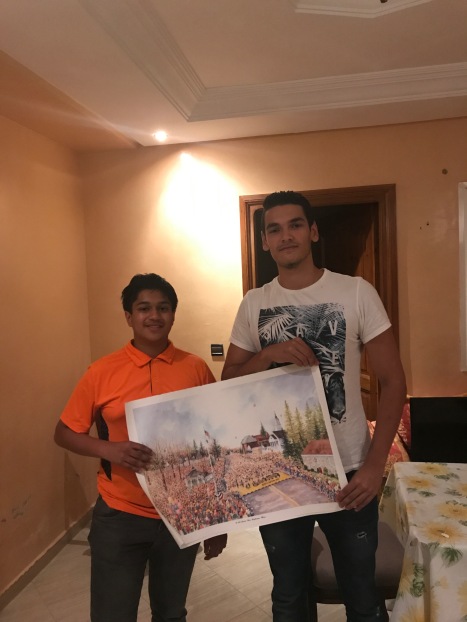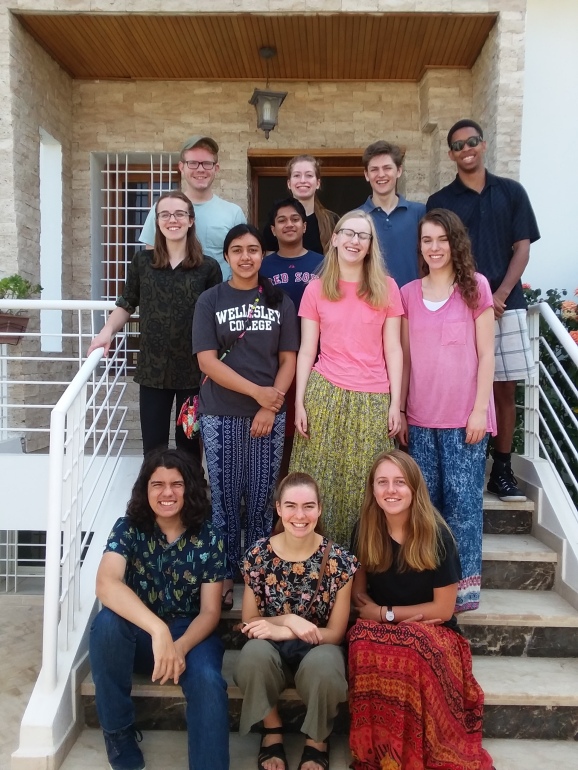One might wonder about the dichotomy between American and Moroccan cultures and as I have been in Morocco for a week and half, I would like to share my opinion. To be completely honest, Moroccan culture shares vast similarities with American culture. Not the answer you were expecting? It’s true! My host brothers know more American music than I do! They know Kanye West (literally all his songs), Drake, John Legend, and all the other popular teenager songs that are typically played on the radio. Additionally, my host brother, Amine, has watched more American movies than I even though I consider myself as someone who has watched countless movies. Their knowledge about American culture and world affairs is astounding and their proficiency in our language supports that claim.
However, there are differences between the two cultures. For example, they always eat their meals in a communal fashion and it is customary to always have bread as part of the meal. Eating food in a social setting and often is considered normal and a sign of prosperity and wealth. Another difference is the influence of religion on people’s schedules and daily lives. Although both my host brothers pride themselves on not being religious (in fact my host brother even claims he is not a Muslim), most Moroccan families’ daily lives revolve around religion. Whether it be the call to prayer or moral and ethical decisions, most Moroccans use religion as a signpost to make decisions.
Another difference is the way that people interact amongst each other. For example, Moroccan people are extremely hospitable and it is considered rude not to invite guests to stay over when someone visits the family for tea or dinner. Moreover, people are never in a hurry like they are back home in America. Moroccan people love to chat and pride themselves on their hospitable nature.
Overall, Moroccan culture is rich and full of positive aspects that make living in Morocco a fun and pleasant experience. Observing the differences between American and Moroccan cultures was an interesting exercise for me and helped me appreciate different people and cultures.
This week, we participated in a lecture and discussion around the politics of Morocco and North Africa. We also invited another group of US high-schoolers participating in a 2-week exchange program for this discussion. This provided us a nice opportunity to meet with other Americans in Rabat.
A meet and greet for the NSLI-Y students and all their host siblings was organized by Sanjay, our counsellor. This ‘Ice Breaker’ helped to connect the host siblings to one another, as well as with the other NSLI-Y participants. The NSLI-Y Rabat group also baked a batch of cookies to share with everyone at this event.





